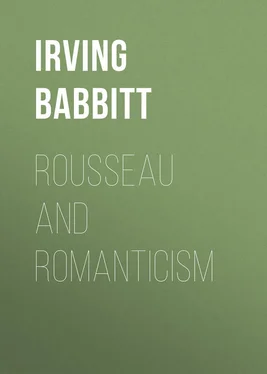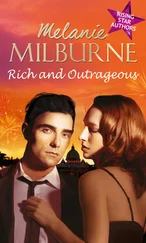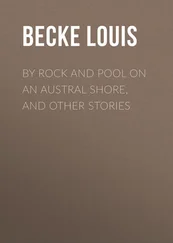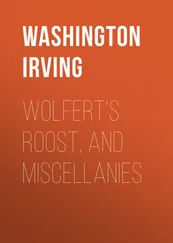Irving Babbitt - Rousseau and Romanticism
Здесь есть возможность читать онлайн «Irving Babbitt - Rousseau and Romanticism» — ознакомительный отрывок электронной книги совершенно бесплатно, а после прочтения отрывка купить полную версию. В некоторых случаях можно слушать аудио, скачать через торрент в формате fb2 и присутствует краткое содержание. Жанр: foreign_antique, foreign_prose, на английском языке. Описание произведения, (предисловие) а так же отзывы посетителей доступны на портале библиотеки ЛибКат.
- Название:Rousseau and Romanticism
- Автор:
- Жанр:
- Год:неизвестен
- ISBN:нет данных
- Рейтинг книги:5 / 5. Голосов: 1
-
Избранное:Добавить в избранное
- Отзывы:
-
Ваша оценка:
- 100
- 1
- 2
- 3
- 4
- 5
Rousseau and Romanticism: краткое содержание, описание и аннотация
Предлагаем к чтению аннотацию, описание, краткое содержание или предисловие (зависит от того, что написал сам автор книги «Rousseau and Romanticism»). Если вы не нашли необходимую информацию о книге — напишите в комментариях, мы постараемся отыскать её.
Rousseau and Romanticism — читать онлайн ознакомительный отрывок
Ниже представлен текст книги, разбитый по страницам. Система сохранения места последней прочитанной страницы, позволяет с удобством читать онлайн бесплатно книгу «Rousseau and Romanticism», без необходимости каждый раз заново искать на чём Вы остановились. Поставьте закладку, и сможете в любой момент перейти на страницу, на которой закончили чтение.
Интервал:
Закладка:
My plan then is to determine to the best of my ability, in connection with a brief historical survey, the common element in the various uses of the words classic and romantic; and then, having thus disposed of the similarities, to turn to the second part of the art of defining and deal, also historically, with the differences. For my subject is not romanticism in general, but only a particular type of romanticism, and this type of romanticism needs to be seen as a recoil, not from classicism in general, but from a particular type of classicism.
I
The word romantic when traced historically is found to go back to the old French roman of which still elder forms are romans and romant . These and similar formations derive ultimately from the mediæval Latin adverb romanice . Roman and like words meant originally the various vernaculars derived from Latin, just as the French still speak of these vernaculars as les langues romanes ; and then the word roman came to be applied to tales written in the various vernaculars, especially in old French. Now with what features of these tales were people most struck? The reply to this question is found in a passage of a fifteenth-century Latin manuscript: 17 17 Quoted in Grimm’s Dictionary.
“From the reading of certain romantics, that is, books of poetry composed in French on military deeds which are for the most part fictitious.” 18 18 Ex lectione quorundam romanticorum, i.e. librorum compositorum in gallico poeticorum de gestis militaribus, in quibus maxima pars fabulosa est.
Here the term romantic is applied to books that we should still call romantic and for the very same reason, namely, because of the predominance in these books of the element of fiction over reality.
In general a thing is romantic when, as Aristotle would say, it is wonderful rather than probable; in other words, when it violates the normal sequence of cause and effect in favor of adventure. Here is the fundamental contrast between the words classic and romantic which meets us at the outset and in some form or other persists in all the uses of the word down to the present day. A thing is romantic when it is strange, unexpected, intense, superlative, extreme, unique, 19 19 Perhaps the most romantic lines in English are found in one of Camillo’s speeches in The Winter’s Tale (IV, 4): a wild dedication of yourselves To unpath’d waters, undream’d shores. This “wild dedication” is, it should be noted, looked upon by Camillo with disfavor.
etc. A thing is classical, on the other hand, when it is not unique, but representative of a class. In this sense medical men may speak correctly of a classic case of typhoid fever, or a classic case of hysteria. One is even justified in speaking of a classic example of romanticism. By an easy extension of meaning a thing is classical when it belongs to a high class or to the best class.
The type of romanticism referred to in the fifteenth-century manuscript was, it will be observed, the spontaneous product of the popular imagination of the Middle Ages. We may go further and say that the uncultivated human imagination in all times and places is romantic in the same way. It hungers for the thrilling and the marvellous and is, in short, incurably melodramatic. All students of the past know how, when the popular imagination is left free to work on actual historical characters and events, it quickly introduces into these characters and events the themes of universal folk-lore, and makes a ruthless sacrifice of reality to the love of melodramatic surprise. For example, the original nucleus of historical fact has almost disappeared in the lurid melodramatic tale “Les quatre fils Aymon,” which has continued, as presented in the “Bibliothèque Bleue,” to appeal to the French peasant down to our own times. Those who look with alarm on recent attacks upon romanticism should therefore be comforted. All children, nearly all women and the vast majority of men always have been, are and probably always will be romantic. This is true even of a classical period like the second half of the seventeenth century in France. Boileau is supposed to have killed the vogue of the interminable romances of the early seventeenth century which themselves continue the spirit of the mediæval romances. But recent investigations have shown that the vogue of these romances continued until well on into the eighteenth century. They influenced the imagination of Rousseau, the great modern romancer.
But to return to the history of the word romantic. The first printed examples of the word in any modern tongue are, it would seem, to be found in English. The Oxford Dictionary cites the following from F. Greville’s “Life of Sidney” (written before 1628, published in 1652): “Doe not his Arcadian romantics live after him?” – meaning apparently ideas or features suggestive of romance. Of extreme interest is the use of the word in Evelyn’s “Diary” (3 August, 1654): “Were Sir Guy’s grot improved as it might be, it were capable of being made a most romantic and pleasant place.” The word is not only used in a favorable sense, but it is applied to nature; and it is this use of the word in connection with outer nature that French and German literatures are going to derive later from England. Among the early English uses of the word romantic may be noted: “There happened this extraordinary case – one of the most romantique that ever I heard in my life and could not have believed,” 20 20 Pepys’s Diary , 13 June, 1666.
etc. “Most other authors that I ever read either have wild romantic tales wherein they strain Love and Honor to that ridiculous height that it becomes burlesque,” 21 21 Thomas Shadwell, Preface to the Sullen Lovers , 1668.
etc. The word becomes fairly common by the year 1700 and thousands of examples could be collected from English writers in the eighteenth century. Here are two early eighteenth-century instances:
“The gentleman I am married to made love to me in rapture but it was the rapture of a Christian and a man of Honor, not a romantic hero or a whining coxcomb.” 22 22 Spectator , 142, by Steele.
Whether the charmer sinner it or saint it
If folly grow romantick I must paint it. 23 23 Pope, 2d Epistle, Of the Character of Women .
The early French and German uses of the word romantic seem to derive from England. One important point is to be noted as to France. Before using the word romantique the French used the word romanesque in the sense of wild, unusual, adventurous – especially in matters of sentiment, and they have continued to employ romanesque alongside romantique , which is now practically used only of the romantic school. A great deal of confusion is thus avoided into which we fall in English from having only the one word romantic, which must do duty for both romantique and romanesque . An example of romantique is found in French as early as 1675; 24 24 Cf. Revue d’hist. litt. , XVIII, 440. For the Early French history of the word, see also the article Romantique by A. François in Annales de la Soc. J. – J. Rousseau , V, 199-236.
but the word owed its vogue practically to the anglomania that set in about the middle of the eighteenth century. The first very influential French example of the word is appropriately found in Rousseau in the Fifth Promenade (1777): “The shores of the Lake of Bienne are more wild and romantic than those of the Lake of Geneva.” The word romantique was fashionable in France especially as applied to scenery from about the year 1785, but without any thought as yet of applying it to a literary school.
Интервал:
Закладка:
Похожие книги на «Rousseau and Romanticism»
Представляем Вашему вниманию похожие книги на «Rousseau and Romanticism» списком для выбора. Мы отобрали схожую по названию и смыслу литературу в надежде предоставить читателям больше вариантов отыскать новые, интересные, ещё непрочитанные произведения.
Обсуждение, отзывы о книге «Rousseau and Romanticism» и просто собственные мнения читателей. Оставьте ваши комментарии, напишите, что Вы думаете о произведении, его смысле или главных героях. Укажите что конкретно понравилось, а что нет, и почему Вы так считаете.












